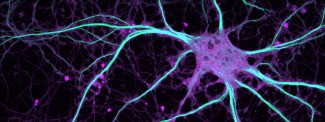Serotonin is a neuromodulator, meaning a molecule produced by neurons that modulates communication between other neurons in our brain. Serotonin has many functions that, for some, remain unclear. It is involved in regulation of behaviors, mood, anxiety, as well as learning. Serotonin is also thought to be involved in motivation and decision-making. A new study from the team led by Mathias Pessiglione is focused on gaining a better understanding of the effects of SSRI therapy, prescribed for severe depression, on motivation in healthy individuals and framing these effects within serotonin’s decision-making role.
What is SSRI therapy?
The most prescribed treatments for severe depression are SSRI, or Selective Serotonin Reuptake Inhibitors. They enable an increase in the brain’s serotonin levels.
Effects of SSRI therapy are improvement in mood and decrease in anxiety. However, effects on apathy, defined as a loss of motivation and interest, are unclear. Several studies have found that this type of treatment does not decrease apathy and, in some patients, actually enabled it. Other studies found an improvement in motivation and in reward sensitivity.
How do these treatments work?
To understand how SSRI therapy works, we need to take a look at our synapses. A synapse is a contact area between two neurons. Serotonin modulates the efficiency of synaptic transmission, which is the transfer of information from one neuron to the other.
The way selective inhibitors work is that they prevent serotonin reuptake. Consequently, serotonin remains in the synapse longer, which in turn increases neuron stimulation.
What methods did you use for this study?
The study was conducted on 58 subjects in two groups. Group 1 received an SSRI-based antidepressant treatment, and Group 2 received a placebo.
Subjects were asked to grip a handle for a certain amount of time: the longer they gripped the handle, the more money they earned.
What were the results of your study and what new outlooks stemmed from it? Did SSRI therapy have an effect on decision-making?
Patients taking the antidepressant treatment made more of an effort to obtain a reward. Serotonin increase may therefore play a part in improving motivation, either by decreasing perception of cost and effort, or by giving reward greater value. Mathematic and computational analysis of the results goes in the direction of the first option, meaning that treatment would have an impact on assessment of cost and effort.
Results suggest that serotonin plays a part in surpassing the cost of our actions, such as importance of required effort or period of time before we obtain a reward. Serotonin may therefore play a complementary role with respect to dopamine, another neuromodulator that highlights expected benefits.
Following these results, we are now focusing on whether tailored treatment would improve motivational deficit. Patients who tend to overestimate cost may benefit more from serotonin-targeted treatment, and patients who underestimate benefits may see improvement with dopamine-targeted treatment.
Reference: A specific role for serotonin in overcoming effort cost. Florent Meyniel, Guy M Goodwin, JF William Deakin, Corinna Klinge, Christine MacFadyen, Holly Milligan, Emma Mullings, Mathias Pessiglione, Raphaël Gaillard.







